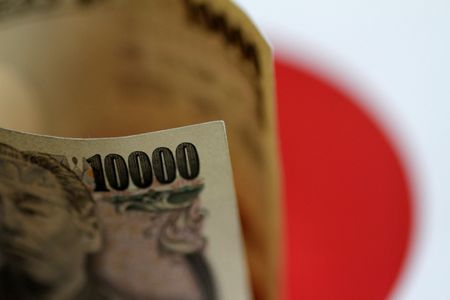

By Kaori Kaneko and Daniel Leussink
TOKYO (Reuters) – Japan’s efforts to stop the yen’s sharp falls through market intervention would be limited in its impact, a senior member of the country’s ruling party warned, as data showed the currency’s recent tumble blowing the trade deficit to a record.
The Japanese yen held above 24-year lows against the U.S. dollar on Thursday, a day after authorities issued their clearest signals to date that they were not comfortable with recent sharp declines in the currency and were preparing for intervention.
The yen last traded around 143.30 per dollar, down 0.1%.
Satsuki Katayama, the ruling Liberal Democratic Party’s (LDP) head of a research commission on financial affairs, said on Wednesday Tokyo lacked effective means to combat the yen’s falls and that unilaterally interventions would be limited.
“Solo currency intervention won’t be that effective” in stemming sharp yen falls, which are driven by the interest-rate gap between the United States and Japan, Katayama told Reuters.
Raising Japan’s ultra-low interest rates would also be difficult given the impact that could have on the country’s 550 trillion yen ($3.84 trillion) of bank loans, said Katayama who is also a former Ministry of Finance (MOF) official with financial markets expertise.
Separately, data on Thursday showed the trade deficit hit its biggest in a single month on record in August at $19.7 billion. The blowout follows a nearly 20% slide in the yen since the start of the year.
The weak yen caused particular pain for household budgets that are facing pressure from price rises, said Ayako Sera, market strategist at Sumitomo Mitsui Trust Bank.
“When comparing the positive and negative impact the weak yen is having on the situation in Japan overall, there are clearly more negatives,” Sera said.
The trade data showed the average exchange rate was 135.08 yen per dollar, a 22.9% jump of the greenback against the yen from a year earlier.
(This story corrects yen direction in paragraph 3)
(Reporting by Daniel Leussink and Kaori Kaneko; Editing by Sam Holmes)

